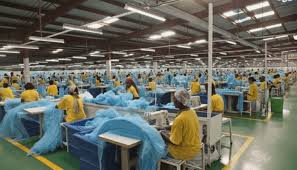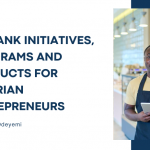The Small and Medium Enterprises Development Agency of Nigeria (SMEDAN), in partnership with the United Nations Development Programme (UNDP), has inaugurated a solar-powered garment-making center in Abuja to support small businesses by reducing operational costs and promoting clean energy.
The facility provides SMEs with free access to advanced garment-making equipment, eliminating expenses related to power, machine purchases, and maintenance. It is powered by 254 locally manufactured solar panels, generating 240 kVA to ensure a steady energy supply.
At the launch, SMEDAN’s director-general, Charles Odii, noted that rising business costs have strained SMEs. He explained that the initiative aims to ease these pressures by offering entrepreneurs a cost-effective production space.
“Since President Bola Ahmed Tinubu took office, some policies have increased the cost of doing business. This initiative reduces that burden. Small businesses can use the facility for free without worrying about power or equipment costs,” Odii said.
Beyond production, the center provides warehousing and distribution support. SMEDAN has partnered with NIPOST and God Is Good Logistics to offer SMEs discounted shipping rates of 15% and 20%, respectively, for nationwide deliveries.
The solar-powered garment center is part of a broader plan to boost industrialization and employment in Nigeria. Similar facilities have been established in Katsina and Osun States, with plans to expand across all 36 states and the Federal Capital Territory.
The facility houses 120 machines, each capable of employing at least five workers, potentially generating around 700 direct and indirect jobs daily.
UNDP’s resident representative in Nigeria, Elsie Gyekyewaa Attafuah, praised the partnership, highlighting SMEs as the backbone of the country’s economy. She emphasized that such initiatives could strengthen Nigeria’s position in the African Continental Free Trade Area (AfCFTA), which serves a market of 1.4 billion people.
“Nigeria has 40 million micro, small, and medium-scale enterprises contributing significantly to GDP and job creation. By providing sustainable energy, we are enabling these businesses to grow,” Attafuah said.
She also revealed that UNDP, through the Timbuktu Initiative, plans to invest $1 billion to support 10,000 startups across Africa. Additionally, university-based innovation hubs are being developed at institutions like the University of Lagos and Ahmadu Bello University to provide young entrepreneurs with access to prototyping and production equipment.
Meanwhile, the National Union of Textile, Garment, and Tailoring Workers of Nigeria (NUTGTWN) has urged SMEDAN and UNDP to expand the initiative to industrial hubs like Kano, which has a large tailoring industry.
“If this project reaches all 36 states, it will significantly boost Nigeria’s economy. We encourage SMEDAN and UNDP to replicate this model nationwide,” said Auwalu Abdullahi, a representative of the union.
With the national expansion in view, the solar-powered garment-making center is poised to transform Nigeria’s textile industry, strengthen local production, create jobs, and drive economic growth while advancing clean energy adoption.










